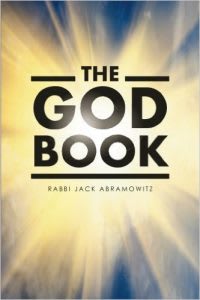50. “Meaningless” Mitzvos
The Torah teaches the things that one needs to learn in order to achieve perfection - God's existence, His unity, His eternity, His omniscience and omnipotence, etc. - but only in bullet points. [III, 28] These things can only be truly understood after acquiring an abundance of wisdom of many kinds. The Torah also requires belief in certain tenets, such as that God is displeased with those who disobey Him, as these will steer a person towards the proper conduct. Other things to master include a knowledge of the universe and its contents, which constitute the various sciences and enable a person to verify the truth. The Torah requires one to love God with all his heart, with all his soul and with all his might (Deuteronomy 6:5); the Rambam tells us that this is only achievable if one first studies God’s wonders of creation so that he can appreciate the wisdom that went into them.
Just as certain beliefs and other forms of knowledge are prerequisites for achieving perfection, the same is true of the mitzvos. Their purposes are more evident when they directly remove some form of injustice or oppression, improve society through our conduct, or impart wisdom that is indispensable for either of those purposes. No one asks why the Torah prohibits murder, robbery and vengeance, or why it requires us to love one another, or even to believe in God. But there are other mitzvos where people might question their purposes, or even wonder whether they actually serve any purpose at all. Why can’t I wear a garment containing both wool and linen? Why must a first-born donkey be redeemed? Mitzvos such as these do not remove corruption, improve society or impart wisdom in any visible manner. We just can’t see how these mitzvos are intended to better us, either bodily or spiritually.
In truth, all of the mitzvos serve one of those three purposes: teaching us necessary truths, removing bad behavior from our midst, or promoting good interpersonal relationships. Sometimes the only purpose of a mitzvah is teaching us a truth, such as knowing God’s unity. Other times, a truth is a means to an end – either removing corruption or promoting good behavior. For example, when the Torah tells us that God will hear the cries of the oppressed (Exodus 22:26), it’s not just a piece of information about God. Rather, it serves as a disincentive against oppressing others.
There are some who cannot accept that the mitzvos have reasons; this is a spiritual defect. [III, 31] Such people assume that if the mitzvos had useful purposes, humans would have come up with them on our own. Since they come from God, they posit, they must have no earthly purpose. The consequence of this misguided notion is that man comes out being seen as more perfect than God. This is because what a human decides to do has a useful purpose but God tells us to do useless things and prohibits us from doing harmless things.
God forbid! In truth, the entire Torah is for our benefit, as we already cited, “Hashem commanded us to do all these statutes, to fear Hashem our God, for our good always, that He might preserve us alive, as it is this day” (Deuteronomy 6:24). Similarly, Deuteronomy 4:6 says, “Observe and perform them for this is your wisdom and your understanding in the sight of the nations; when they hear all these statutes, they will say, ‘Surely this great nation is a wise and understanding people.’” Each of the statutes that God has commanded us demonstrates wisdom and understanding. If the mitzvos had no purpose, could following them be said to be the sign of a wise and understanding people? Surely not!
The truth of the matter is that each of the 613 mitzvos serves a purpose in one of the three ways we’ve described: imparting truth, promoting good, or removing evil.
The God Book – now available from OU Press!

